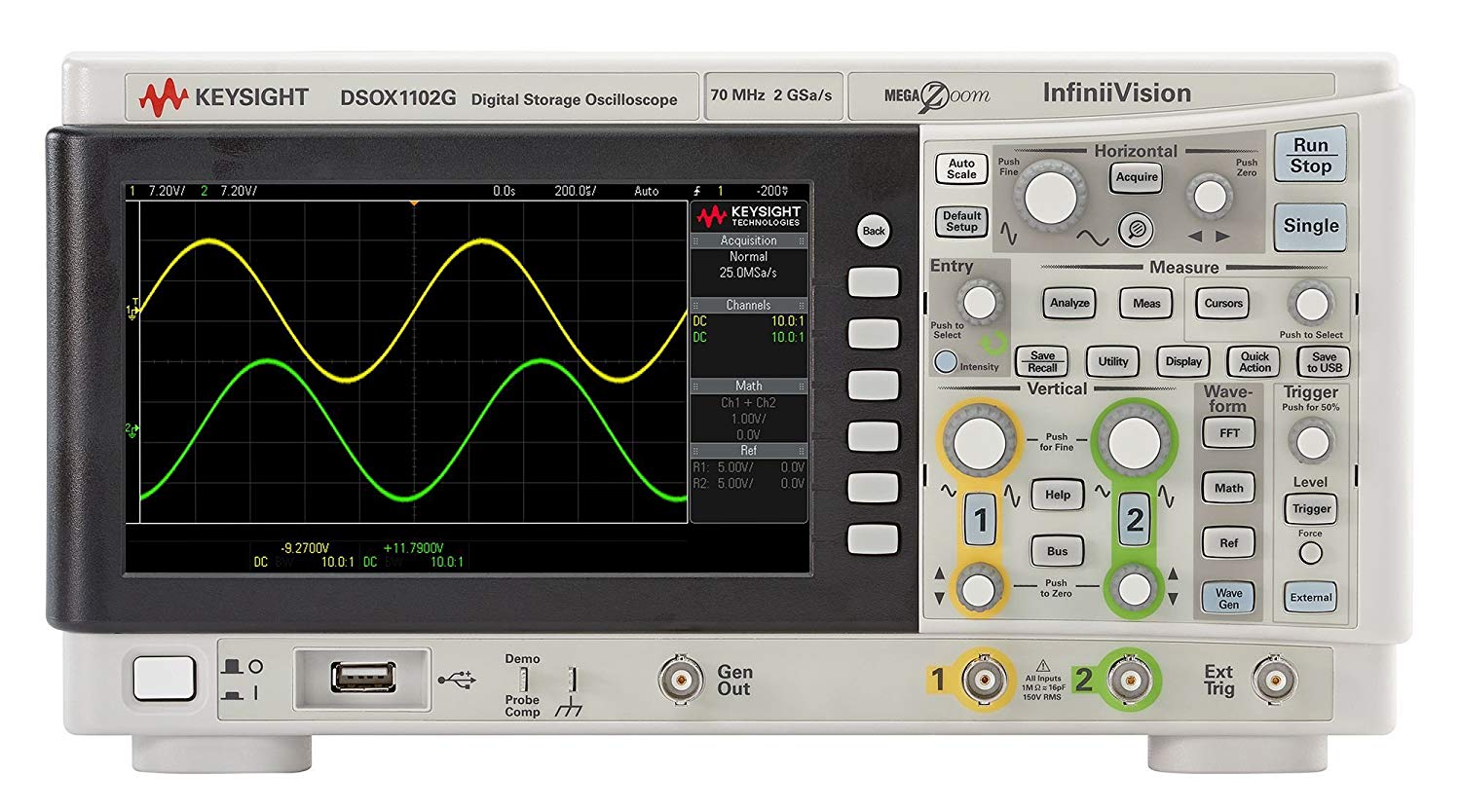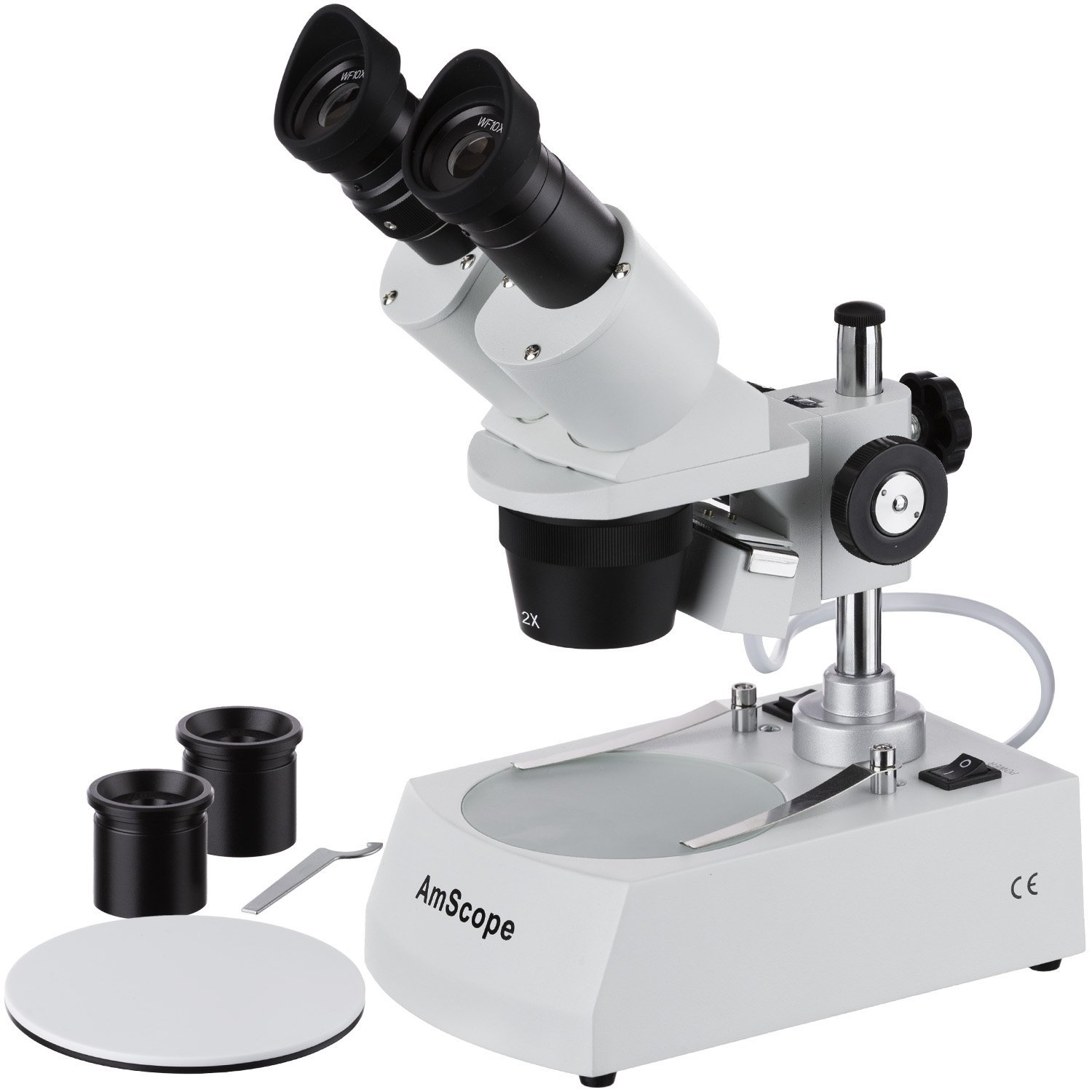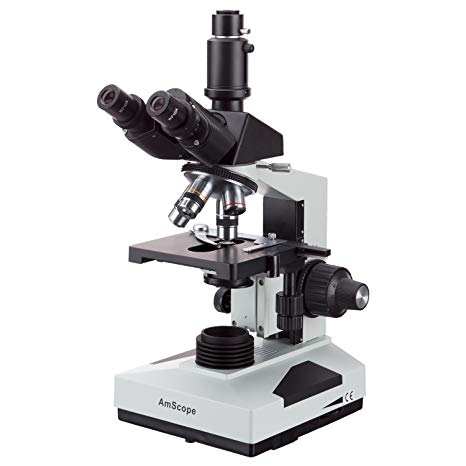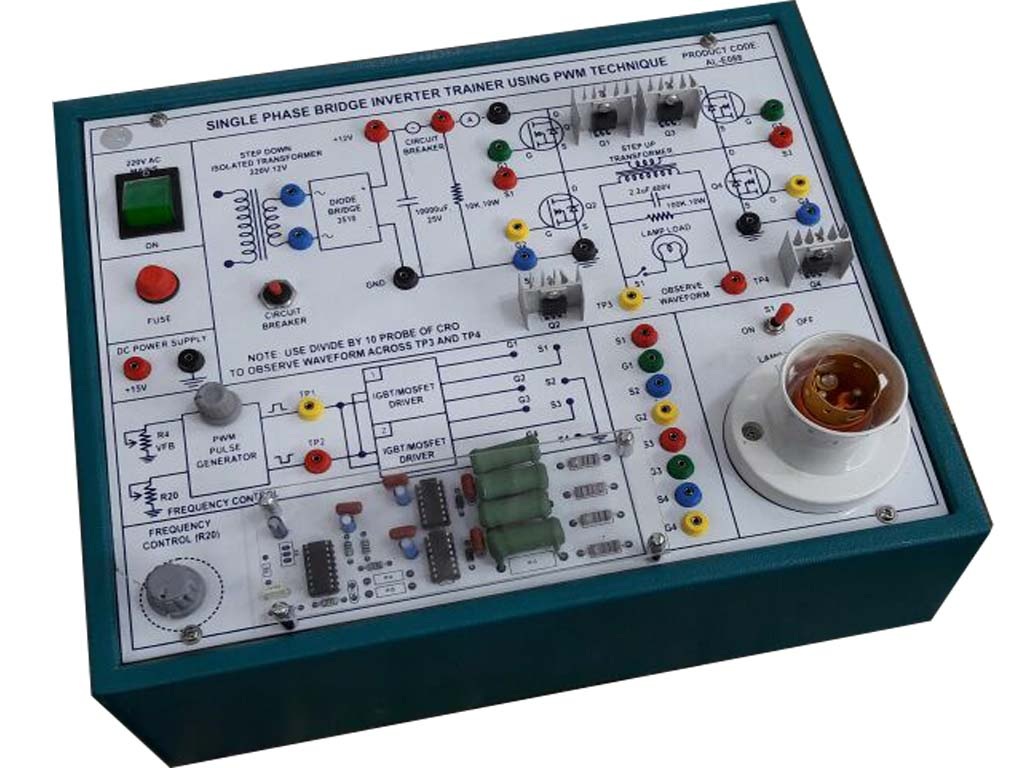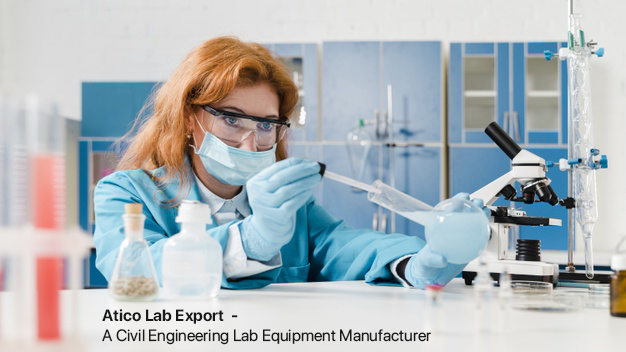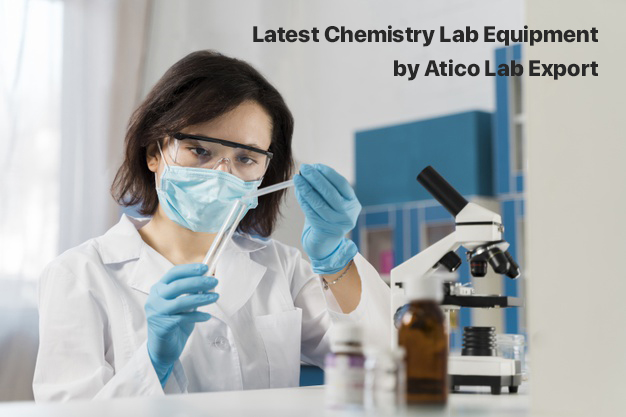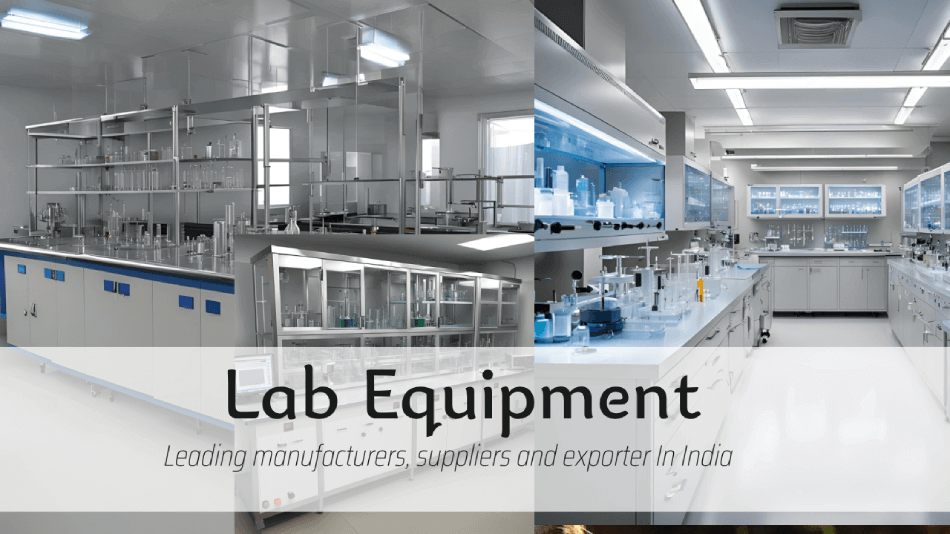
- Admin
- 0 Comments
Scientific research and experiments require reliable lab equipment that offers highly accurate data and user-friendly operations. Choosing a well-known manufacturer of lab equipment ensures the accuracy and quality of goods utilized in various lab environments. This introduction will discuss the significance of choosing a reputable lab equipment manufacturer recognized for creating high-quality goods that meet the needs of modern labs and research centers. Researchers, scientists, and lab technicians can enhance their workflows, produce consistent results, and encourage creativity and scientific knowledge by realizing the value of working with a reliable lab equipment supplier.
Understanding the Importance of Lab Equipment Manufacturers
Critical Role of Manufacturers in the Scientific Community
Manufacturers of lab equipment are essential to scientific experimentation and research. The manufacturers of lab equipment, from test tubes and beakers to cutting-edge laboratory equipment, are fundamental to the advancement of science.
Impact of Manufacturer's Reputation on Lab Operations
As scientists and researchers depend on trustworthy, high-quality laboratory equipment to ensure accurate and repeatable studies, Atico lab equipment manufacturers can have a significant impact on lab operations. Reputable manufacturers of top-notch lab equipment that fits with industry standards can promote researcher trust and make a big difference in the success of laboratory operations as an entire. Only trustworthy manufacturer and suppliers should be selected in order to preserve the integrity of scientific research while maximizing the effectiveness of lab operations.
Innovation and Technological Advancements
The aspiration for innovation and technological improvement within the scientific community is greatly aided by manufacturers of lab equipment. Manufacturers put forth a lot of effort into upgrading their products and offering cutting-edge technologies that are tailored to researchers' ever-changing needs. Producers are pushing the boundaries of innovation in scientific research by developing analytical instruments with greater sensitivity, optimizing processes for greater efficiency, and prolonging the life of laboratory supplies.
Quality Control and Compliance Standards
Atico Lab Export, great emphasis on manufacturing safe and high-quality lab equipment. By adhering to stringent quality control measures and industry regulations, they ensure their products meet the highest standards of performance, reliability, and safety - this not only benefits researchers by giving them reliable tools but also contributes to credibility of scientific findings. Furthermore, adherence with regulatory standards ensures lab operations follow ethical protocols while supporting transparency and integrity during research practices.
Collaborations and Partnerships
Manufacturers frequently work in partnership with researchers, academic institutions, and industry partners to address specific scientific challenges and develop tailored solutions. Such partnerships promote knowledge transfer between disciplines as well as accelerate scientific discovery by meeting unique end user requirements through tailored equipment and services. By working closely with end-users on understanding their individual requirements and offering tailored equipment and services they can aid numerous scientific endeavors and contribute to the success of research projects in various disciplines.
Environmental Sustainability and Corporate Responsibility
Environmental sustainability and corporate social responsibility have become key considerations for laboratory equipment manufacturers. Many are adopting sustainable practices into their production process, such as reducing waste, conserving energy use and choosing eco-friendly materials in production processes. By prioritizing environmental sustainability, lab equipment manufacturers not only reduce their ecological footprint but also demonstrate commitment to social responsibility and ethical business practices - this emphasis resonates with environmentally aware researchers and institutions, encouraging long-term partnerships based on shared values and mutual respect.
Lab equipment manufacturers play a multifaceted and vital role in supporting scientific research, innovation, and discovery. Their commitment to quality, innovation, compliance, collaboration and sustainability ensures researchers have reliable tools and resources needed to advance knowledge while meeting pressing challenges in various fields of study. By understanding their value to laboratory operations as a whole and the impact their work has on lab operations specifically, scientists can create an environment of excellence, integrity, and progress which benefits society as a whole.
Qualities of a Trustworthy Laboratory Equipment Manufacturer
As lab equipment manufacturing becomes an increasingly competitive field, certain qualities set the best manufacturers apart from their peers. A reliable lab equipment supplier goes beyond simply producing products; they focus on quality, compliance, customer service and innovation - characteristics which help define an outstanding manufacturer. Let's explore these key qualities which define a reputable lab equipment provider.
Adherence to Industry Standards and Regulations
Atico Lab Export is a reliable lab equipment supplier, their strict adherence to industry standards and regulations. Precision is of utmost importance in science, so reputable manufacturers ensure their products adhere to or surpass these industry requirements, doing so not only ensures quality lab equipment but also protects laboratory personnel as well as research outcomes.
Flexibility in Product Offerings and Customization
Another important factor is flexibility in terms of product choices and customisation. The needs of laboratories differ substantially from one another. A reputable manufacturer recognizes this diversity by providing a wide range of goods that meet different needs and offers customisation services for unique equipment. With this kind of flexibility, labs can purchase equipment that is specifically suited to their needs in order to maximize productivity and efficiency.
Balancing Quality with Affordability
Finding the perfect balance between cost and quality is necessary to draw in reliable lab equipment makers. While performance is primarily driven by state-of-the-art technology and premium materials, laboratories also frequently take cost into account. Quality-driven manufacturers work hard to satisfy this demand by producing goods that meet or surpass industry standards for quality while yet being reasonably priced. As a result, labs may afford to acquire high-end equipment without going over their financial limits.
Responsive Customer Service and Support
Phenomenal manufacturers stand out for their unmatched customer service and support. For research activities to flourish, laboratory equipment investments must run effectively. Reputable manufacturers provide outstanding customer support, from pre-sales inquiries to post-purchase assistance - from technical assistance, maintenance services, or problem solving, quick and efficient customer support builds relationships over time.
Trustworthy lab equipment manufacturers possess various qualities that include adhering to standards, offering flexible options and prioritizing quality and affordability, along with providing outstanding customer service. By embodying these attributes, manufacturers not only deliver top quality products but also help laboratories advance globally.
Selecting the Right Lab Equipment Manufacturer
Researching Manufacturer's Track Record and Reviews
When selecting a laboratory equipment manufacturer, it is crucial to research their track record and read customer reviews. Focus on manufacturers with proven their ability to produce high-quality and dependable equipment with positive user reviews; other considerations could include how long the business has been around; any certifications held; as well as awards or recognition received within their industry.
Assessing Product Range and Innovation
Consider a manufacturer's product line and degree of innovation before making your selection. Prioritize goods with a wide range of capabilities that fulfill all of your lab requirements and have state-of-the-art technologies when selecting your supplier. Consider how their equipment makes use of this cutting-edge technology, any patents they may have, and how frequently new products are released or old ones are upgraded.
Comparing Pricing and Value Propositions
While buying laboratory equipment, cost should always be taken into account. When choosing a manufacturer, examine their prices and assess their value propositions; give priority to those that offer affordable pricing without sacrificing quality; and don't forget to account for all ownership costs, such as upkeep and running expenses.
Evaluating Post-Purchase Services
Take into consideration all aspects related to the after-purchase products that the manufacturer offers. When selecting your lab equipment manufacturer, consider things like warranty duration and coverage, availability of spare parts, maintenance services, technical support services, training programs, and customer assistance. To help minimize downtime and maintain seamless operations in your lab, look for one with outstanding customer support. Throughout its life, dependable post-purchase services will significantly impact overall value.
Selecting an lab equipment provider for your laboratory is a vital decision that will have long-term ramifications on its operations and research outcomes. Aside from what has already been mentioned here are additional considerations:.
Industry Reputation: Search for manufacturers with an excellent track record in the industry, who uphold ethical practices while being committed to quality and customer satisfaction.
Customization Options: If your laboratory requires customized equipment, consider manufacturers that offer customization services to tailor products exactly to meet the demands of its specific requirements.
Regulatory Compliance: Assuring compliance with industry regulations and standards can ensure the safety and reliability of equipment purchased.
Environmental Impact: Consider choosing manufacturers who prioritize sustainability and eco-friendly practices during manufacturing processes to minimize environmental footprint.
By carefully considering all these elements in addition to your core considerations, you can make an informed choice when selecting a lab equipment manufacturer for your research facility.
Case Studies of Leading Lab Equipment Manufacturers
Manufacturer Insights: Pioneering Technologies and User Feedback
In this section, we explore the innovative technologies developed by top lab equipment manufacturers. Through user feedback and testimonials, we explore how these technologies have enhanced research processes and contributed to scientific advancements. From cutting-edge spectrophotometers to revolutionary centrifuges, we showcase how manufacturers have tailored their solutions specifically to meet the evolving needs of researchers around the globe.
Global Impact: Market Presence and Industry Recognition
Focusing on the global presence and influence of leading lab equipment manufacturers, we discuss their market share, international collaborations, industry recognition and case studies of success stories highlighting their significant influence in scientific communities worldwide. Furthermore, we look at how these companies have successfully navigated international markets while adapting to various regulatory frameworks and cultural nuances to become reliable partners in scientific research.
Sustainability Commitment: Green Initiatives and Awards
By recognizing the environmental honors and sustainability efforts that top lab equipment manufacturers have won, we shed light on their dedication to environmentally responsible business practices. We examine the green technology and methods used by these companies to lower carbon emissions and encourage a more environmentally friendly industrial future through case studies. We highlight the actions done by these companies to implement more ethical practices in their operations, from energy-efficient freezers to the use of recyclable materials in equipment design.
Innovation Driving Research Excellence
Explore how modern technologies have changed laboratory equipment, including automation, IoT connectivity, and AI integration. Case studies will emphasize practical applications and how they can revolutionize the effectiveness and results of research. Innovation has really ushered in scientific advancements, from cloud storage that fosters cooperation to predictive maintenance algorithms that optimize equipment performance!
Community Engagement and Knowledge Sharing
Leading manufacturers not only create cutting-edge equipment but also maintain active relationships with academia. Find out how these businesses encourage cooperation, exchange best practices, and fund educational programs to generate the next generation of scientists and inventors. Their collaborations with educational establishments and outreach initiatives additionally promote the sharing of knowledge and the enhancement of skills, thereby establishing an environment that is favorable to ongoing education and creativity.
Industry Trends and Future Outlook
Learn about the newest developments in lab equipment manufacture, such as data-driven analytics and personalized solutions. By means of market projections and the examination of expert viewpoints, we project the future state of the industry and identify the manufacturers who will have a significant influence on it. As technology developments in this field change quickly, expect to see machine learning integrated into laboratory operations or into modular lab settings specifically designed for research requirements.
Conclusion
Lab equipment manufacturers play in advancing science, promoting sustainability initiatives, and fostering innovation for a better future. These manufacturers will continue to be lights of excellence, advancing scientific research and opening up new avenues for cooperation.
Ensuring Longevity and Performance of Lab Equipment
Implementing best practices for maintenance and care of laboratory equipment is key to its longevity and optimal performance, both of which depend on accurate results that last throughout its lifespan. Staff training programs on proper utilization can further extend its longevity. Furthermore, calibration/quality control measures help laboratories maximize efficiency and reliability - leading to enhanced research outcomes and operational success.
Maintenance and Care
Laboratory equipment is an expensive investment for any research facility, and to safeguard this investment and ensure its longevity and performance it is crucial that comprehensive maintenance and care practices be implemented. Regular cleaning and inspection of components like sensors, probes and seals can reduce malfunctions and extend their operational lifespan as well as help ensure peak performance from their instruments.
Training Programs
As important as maintenance is, providing training programs for laboratory personnel is also crucial. Proper training ensures staff members have the proficiency in operating equipment correctly to minimize errors or equipment damage risks and maximize its efficiency for higher productivity and better research outcomes.
Calibration and Quality Control
Calibration and quality control are integral parts of equipment maintenance. Regular calibration ensures accurate and precise measurements for reliable data production, while quality control measures such as running control samples or performing instrument checks can identify any deviations in performance that might compromise lab standards.
Routine Maintenance Schedule
To maximize the lifespan and performance of laboratory equipment, it is imperative that a regular maintenance schedule is implemented. This should involve regular inspections, cleaning and lubrication of parts to prevent wear-and-tear. Furthermore, conducting performance checks and validating calibration settings allows timely repairs or adjustments when any issues arise.
Tailored Training Programs
Training programs must be tailored specifically for the laboratory equipment used. Staff members should receive hands-on instruction on operation, maintenance and troubleshooting procedures as well as troubleshooting techniques. Continuous education and skill development workshops may also help keep personnel up-to-date with advances in equipment technology.
Calibration Best Practices
Calibration should follow manufacturer recommendations and specifications. Regular calibration sessions must be recorded and tracked in order to comply with industry regulations and standards, and quality control measures should be included into daily laboratory practices in order to monitor equipment performance and ensure accurate test results.
Conclusion
Implementing best practices in equipment maintenance, training, calibration and quality control is essential to extending the longevity and optimal performance of lab equipment. By adopting these best practices into their daily operations, laboratories can protect their investments while improving research results while upholding high standards of quality and accuracy in their work.
Investing Wisely for Future Success
The Crucial Role of Quality Lab Equipment in Driving Long-Term Success.
Quality lab equipment is at the core of any successful research endeavor, providing researchers with tools that enable breakthrough discoveries. By exploring this realm, we discover untold opportunities that could alter research outcomes dramatically. Let's discover how investing in top-quality equipment yields long-term benefits far exceeding its acquisition cost.
Enhanced Research Outcomes Through Reliability
As one of the primary benefits of quality lab equipment is to greatly enhance research outcomes, using reliable equipment can have a major effect. Reliable equipment helps maintain consistency in experimental results while minimising errors and increasing overall research quality. With precision instruments like those from Fluka or Olympus available today, researchers can trust in more robust findings and scientific advancement.
Improved Efficiency and Cost Savings
Efficiency is of utmost importance in research, and quality lab equipment plays a pivotal role in streamlining processes and workflows. By investing in reliable instruments, research labs can streamline operations, reduce downtime, increase overall productivity, and save on long-term cost savings compared with buying lesser quality instruments up front. Finally, long-term cost savings make quality equipment an affordable solution for facilities.
The Pitfalls of Outdated or Subpar Equipment
Use of outdated or subpar equipment can have disastrous effects on research quality and productivity. Imperfect measurements, inconsistent performance and frequent breakdowns are among the many issues faced by laboratories with subpar equipment; researchers' pursuits are hindered, leading to wasted time and resources as well as compromised results.
Realizing Returns Through Strategic Partnerships
As important as equipment may be, partnering with reliable manufacturers cannot be overemphasized. Working closely with industry leaders not only ensures access to cutting-edge tech but also unlocks many other advantages that propel research endeavors forward. From personalized support to continuous innovation, reputable manufacturers provide invaluable resources that ensure successful research endeavors.
Illustrating the Return on Investment
Successful partnerships with top manufacturers yield significant returns, manifesting in various forms. Increased research output, enhanced credibility among academic peers and long-term cost savings are just some of the many advantages enjoyed by research facilities that prioritise quality collaborations. By sharing examples of fruitful alliances and their transformative power in driving research excellence we show how transformative strategic alliances can be for driving research excellence forward.
Investment in quality lab equipment and building relationships with reputable manufacturers are critical elements to research success. By prioritizing reliability, efficiency, and innovation research facilities can position themselves at the forefront of scientific advancement, opening doors to groundbreaking discoveries that make an impactful contribution to society.
Conclusion
Selecting a reliable lab equipment manufacturer is key to ensuring accurate research results. By working with a renowned manufacturer known for producing top-of-the-line products and offering exceptional customer service, labs can increase efficiency and productivity while investing in reliable equipment can lead to improved scientific outcomes and support advancement in various fields of research. Quality should always come first when selecting equipment for laboratory needs.

